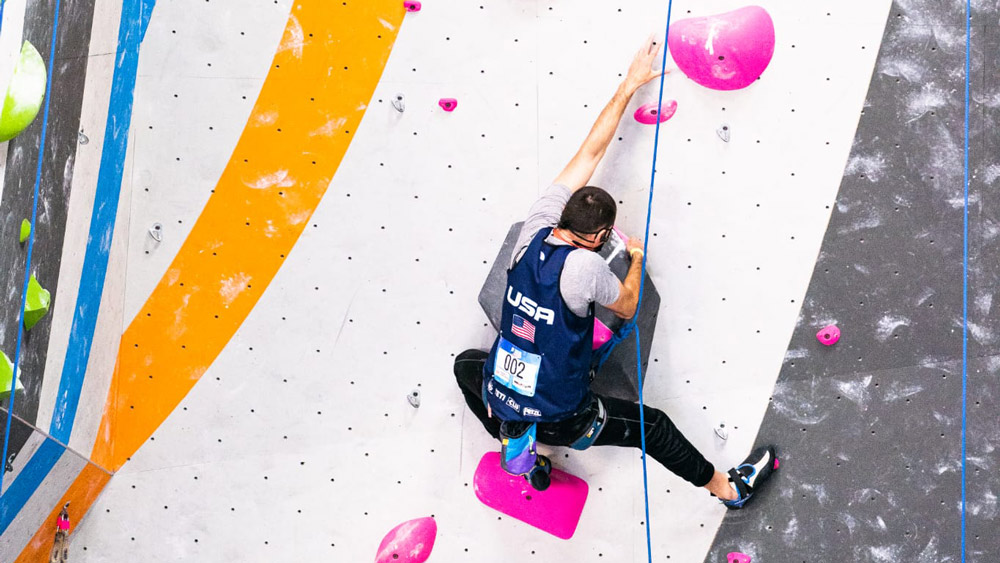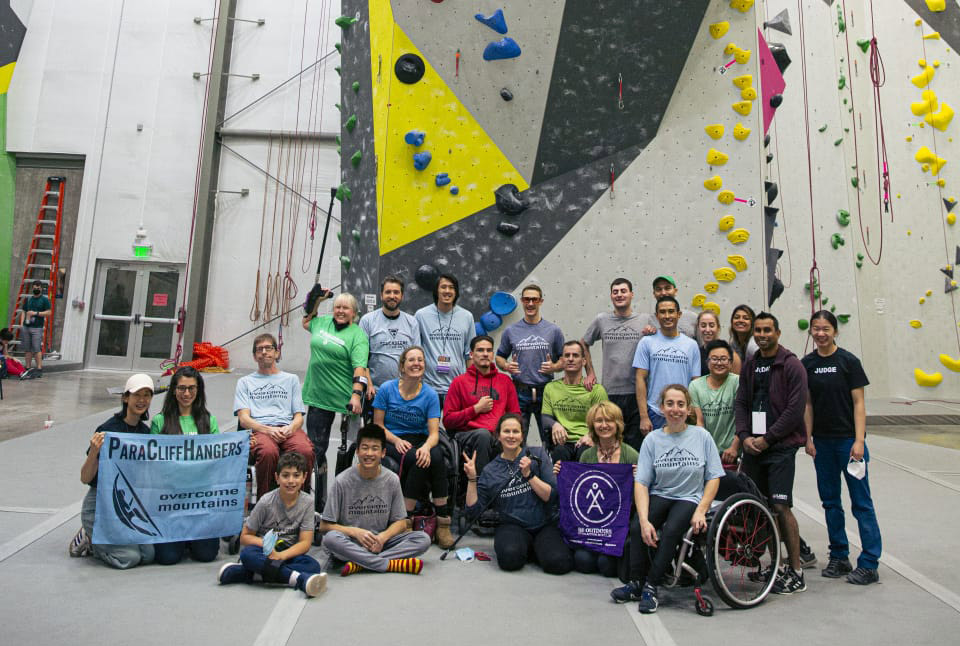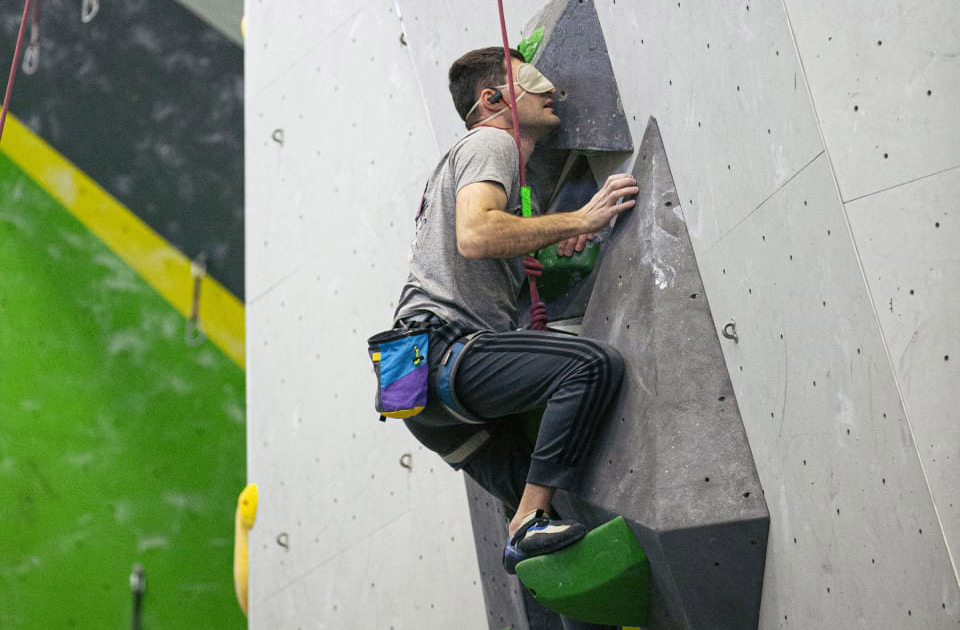The 35-year-old blind native of Albania didn’t compete in sports growing up. That all changed when he discovered rock climbing.

When Eris Skenderi was three years old, his parents discovered he had glaucoma. By the time he was 17, his vision was completely gone, and he was left with light perception.
Born in Albania, Skenderi came to the United States in 2009. It was a challenge adjusting to the eventuality that he wouldn’t be able to drive and do other things fully sighted people could do. He also struggled with the perception others created about blindness, both in Albania and the U.S.
“They see you as blind and (they) don’t think you can do this and do that,” said the 35-year-old Skenderi. “But after they see we can do stuff, they change their mind.”

Skenderi attended a school for the blind in Albania. After high school, he went to law school for a year and a half before deciding to move to the United States. He currently lives in Staten Island, New York and has applied several times for citizenship status.
“I’m still waiting for that. I just got my work permit two or three months ago.”
Skenderi didn’t compete in sports growing up, other than playing soccer recreationally with his friends. He joined Achilles International where he learned about triathlons and other adaptive sports. He discovered tandem biking while running with a group one Saturday.
“There was another group across the street tandem biking. I (wondered) how a blind person could tandem bike.”
Skenderi was introduced to the group’s pilot, who explained how tandem biking worked. He offered Skenderi an opportunity to do a six-mile loop that included Harlem Hill. Skenderi decided to time the ride, and was surprised to discover it took just 22 minutes to complete.
“(The pilot) said, ‘I felt like I had engines behind me’. For 22 minutes, I was happy after 10 years not riding a bike.”
Skenderi competed with the tandem biking group for a couple of years. One day, the same pilot mentioned that he volunteered for a disabled climbing group called ACG in Queens and asked Skenderi if he’d be interested in joining.
“I used to climb trees and stuff like that. I went with him and that’s how I started climbing.”
Skenderi climbed with ACG before joining ParaCliffhangers, an organization offering indoor and outdoor climbing adventures and competitions for people with varying disabilities. His first event was the 2021 Para Climbing Nationals in Salt Lake City, where he captured a bronze medal. At first, Skenderi assumed he wouldn’t be able to fly to the event because he wasn’t a U.S. citizen. (He discovered later this was not the case). He and two others drove for over two days, camping out overnight before arriving at the event. He suffered car sickness and didn’t arrive in Salt lake City until 1 Am the day of the competition.

“Imagine how I was, not sleeping at all, throwing up and everything. The next day, we competed and I got third place. I was happy.”
When climbing indoors, Skenderi relies on a guide known as a caller who communicates with him by headset and a cell phone to let him know where he is on the wall. Outdoors, he climbs with his group, often using his own instincts.
“Outdoors, basically I go by myself and don’t need anyone to call me. People tell me I’m better outdoors than indoors.”
Last year, Skenderi traveled to Los Angeles and competed in the World Para Climbing Championships. The day of the event, he received an email saying he wasn’t eligible to compete for the U.S. since he was not a citizen. After some discussion, the event organizers finally allowed him to compete, with a caveat: in future years, he would either need to obtain U.S. citizenship or represent Albania.
The experience left him confused and frustrated. Nevertheless, he did well.

“I got nervous and angry. (But) I ended up competing and I was fifth in the world.”
This year, Skenderi participated in the Para Climbing Nationals in Alabama and once again captured a bronze medal. The Foreseeable Future Foundation accepted him as a grant recipient on two different occasions. The funds have helped him pay for travel and hotel expenses to a couple of rock climbing events including Alabama.
“I appreciate it. I think they felt I’m serious about competing.”
Skenderi is still working toward obtaining U.S. citizenship. He still enjoys tandem biking, running, kayaking and sailing. But climbing is his passion.
“My goal is to get that gold (medal) one day. Practice makes you perfect. Just being there and climbing with a community, that makes me excited. I see myself on the same level as everyone.”
